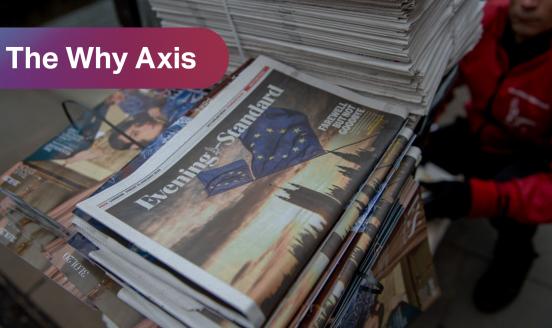Banking union or financial repression? Europe has not chosen yet
European policymakers, particularly on the continent, have long appeared to be in denial of the centrality of systemic banking fragility in the place’s problems. They have first denied a homegrown banking problem existed, by shifting all the blame to Anglo-Saxons in 2007-09; then by engaging in timid, less-than-credible stress tests while redirecting the blame at the Greek government and other lousy fiscal managers in the European South. The October 2011 “recapitalization plan” was in effect another episode of denial, for various reasons: it was based on an unreliable capital assessment; it went full fair value on sovereign debt, in violation of any prudential principles; and it relied on overly volatile debt prices, a dubious basis for capital assessments even at amortized cost, given the huge uncertainties about the Eurozone’s future fiscal framework. The ECB then had little choice than to place Europe’s entire banking system under a shower of long-dated liquidity, as it deed in December to great effect with the three-year LTRO.
In this sorry context, it is good news that a more lively debate seems to emerge these days about the need for a European Banking Union as a necessary complement to Eurozone Fiscal Union, as the FT recently reported. My Peterson Institute colleague Jacob Kirkegaard has a highly optimistic take on this and sees the emergence of an integrated European banking policy in the making.
I believe this view is overly bullish. There is widespread agreement among economists, and European and international technocrats, that Europe’s single financial market and monetary union cannot survive long-term without a banking union. Many observers had defended this view since before the crisis started (me included), and the International Monetary Fund articulated it more specifically in a landmark contribution in April 2010, which the then Managing Director endorsed in a speech in Brussels. But the obstacles are political, not analytical, and they have not disappeared at all.
Put simply, Europe’s leaders are not ready to create a truly meaningful federal framework for banking policy because a critical mass of countries see banks as a core instrument of national policy. Financial repression is back from history books, arguably even more so in the Eurozone than in other so-called advanced economies. The catch is that a true banking union – which I define as the creation of a federal framework for banking policy, including not only regulation but also deposit insurance, supervision and resolution at least for transnational banks – would deprive national governments of many of their levers for financial repression. Therefore the two propositions are to a large extent mutually exclusive – and this is without mentioning other political considerations, from strong local links between banking and political establishments (e.g. Germany or Spain) to economic nationalism (e.g. France), that create huge political resistances against the very notion of a banking union.
An additional obstacle, not to be underestimated, is the discrepancy between the Eurozone and the 27-member European Union. A Eurozone-only banking union would be very difficult to square with the vision of a single EU market for financial services. Meanwhile, the European Banking Authority, created in 2011, happens to be located in London. But the UK is not ready to federalize decisions on banking supervision and resolution, partly because its big banks’ international activities are outside Europe rather than on the continent (see Figure 5 of this). There is no easy answer to this challenge, particularly as nobody knows what direction the UK will take vis-à-vis the EU on a medium-term basis. Even policymakers who forcefully advocate the vision of a banking union, as the ECB’s Benoit Coeuré did in a recent speech, stop short of specifying whether they have a Eurozone or EU27 framework in mind. Senior policymakers acknowledge in private that this is a huge practical obstacle to progress on the way to banking union, and it is not likely to be resolved any time soon.
Ultimately, monetary union cannot be sustainable without fiscal union and banking union, and these will not themselves be sustainable without a form of political union (I tried to articulate this interdependency in my testimony to the US Senate last September). But my hunch is that there is a sequence here: we had monetary union first, we’ll (possibly) have fiscal union next, and (if at all) banking union last. Contrary to many people’s intuitive perception, it is politically easier for a nation to renounce its own currency and even its fiscal sovereignty than its control on banks. The US history is not directly comparable but suggests the same sequence, as a truly integrated national banking market did not emerge there until the second half of the 20th century. The apparent new emphasis on banking union in Europe’s policy debate must be welcomed, but we’re still a very, very long way from the endgame.



